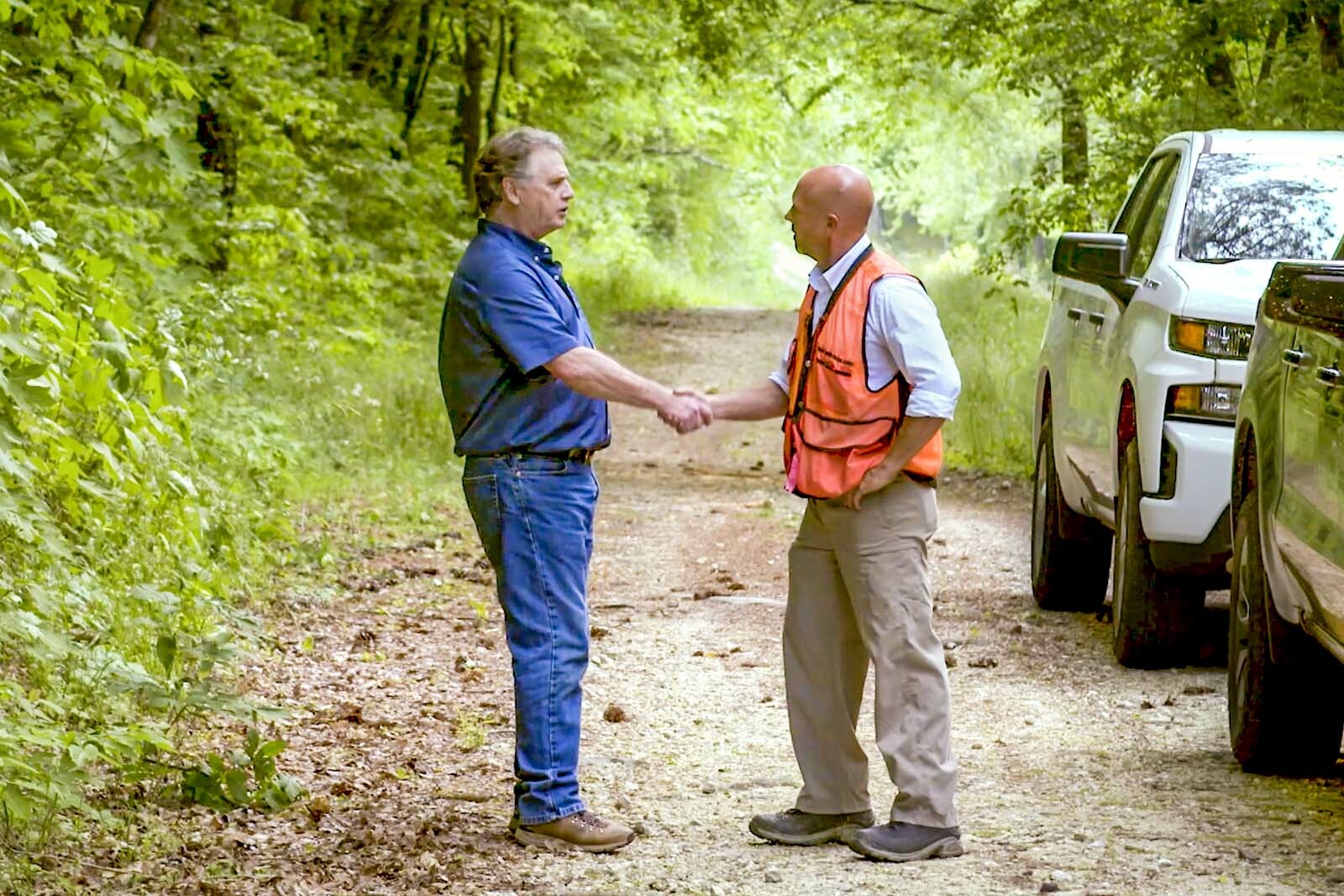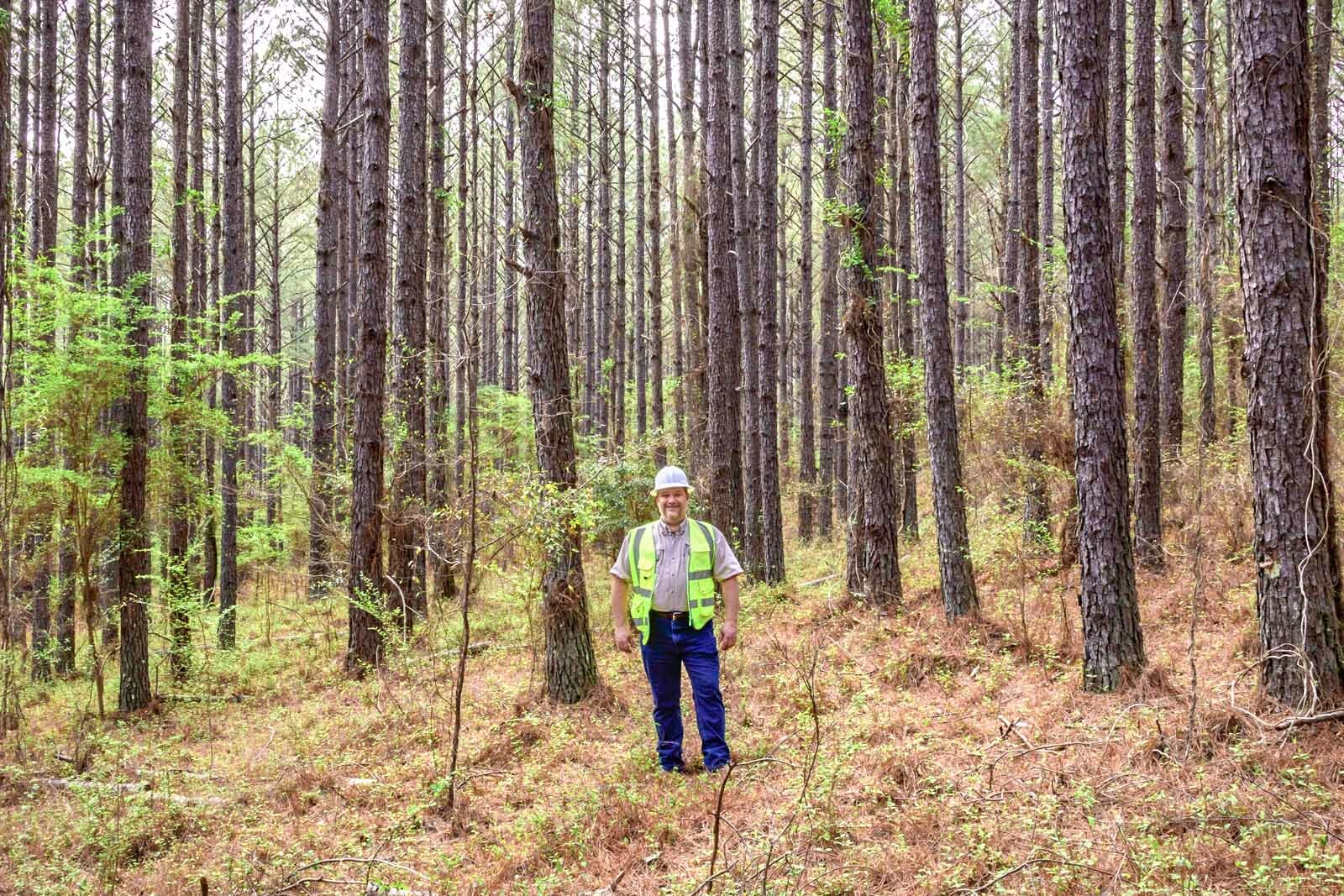Timberland Investments – A Family Affair
The rich, fertile land had been a family heirloom since the 1950s when it was passed on to a pair of brothers. But, for nearly 30 years after the inheritance, the timber land in rural West Alabama continued to be undervalued.
Until a few years ago, the brothers had been working with a “friend of a friend” in managing the timberland investment until one of the brothers, who is also a Regions employee, connected with the Regions Natural Resources and Real Estate team to learn more about the services and capabilities available.
That’s when Jim Bates, now head of Regions Natural Resources and Real Estate, assessed the property and provided a blueprint for leveraging the living assets in an efficient, profitable and sustainable way.
“In 2018, we conducted an initial assessment of the property and noticed the forest was healthy, but some previous forest management activities may not have been conducted properly,” said Bates. “We also knew several wood consuming mills were being built and expanded within close proximity of the property, which suggests there would be a near-term increase in demand for more trees.”
As a result, Bates and team proposed two options to the brothers in how to move forward with the land and the timber. They could sell the wood at the current market rate and start over with new trees planted or they could commit to remaining patient while the new mills were built, and existing mills were expanded. They chose the latter – and it paid off.

Harvesting Dividends
In 2021, the new mills began operations, wet weather set in for prolonged periods of limited wood deliveries, and the ongoing COVID-19 pandemic limited production at the mills causing lumber and timber prices to skyrocket. In the midst of record high lumber prices and supply chain disruptions, the value of their timber soared.
“The brothers recognized an opportune time to sell, and we began preparing the timber,” Bates said. “We set expectations around the estimated value and after only a week on the market, a bidding war began with buyers offering six-figures over the estimated value.”
According to a recent forecast from FORISK Consulting published in August 2022, timber starting prices in the Southern U.S. markets increased for all products for a fourth consecutive quarter. The report cites strong lumber production forecasts as driving increases in 2022.
“A tremendous number of mills are being built. In Alabama alone, newly built mills and more efficient producers are anticipated to consume more than five million additional green tons of wood on an annual basis to meet the increased demand for wood products for consumers,” said Bates. “Additionally, in recent years, the Southeastern US has become the leading provider of solid wood products in North America, passing Canada, and anywhere else in the Continental U.S.”
According to the brothers, working with the Regions Natural Resources and Real Estate team made a tremendous difference in the payoff off the generational timberland investments.
“Working with Jim and his team has been an incredible experience,” shared one of the brothers. “It was clear throughout the whole process that we were working with the right team with the proven knowledge and experience to help us achieve our goals and continue to manage this land that is important to our family.”

Sustainable Land Management
When many people think of timberland investments, they imagine vast tracts of corporate-owned pine forest where crews work year-round to harvest tree after toppled tree. And while that is a common model for larger operations, what they may not know is that private landowners of all sizes can put their land to work and create a sustainable environment.
“Regions offers a full range of forestry services,” said Bates. “Our foresters provide forestry management to commercial, trust and private landowners and have found excellent opportunities to increase their income – and manage their land in a sustainable way.”
For each tree harvested, the team plants a handful more to ensure the health of the land and the continued ecological benefits.
“We oversee the harvest itself and take great care to apply practices to protect lakes, streams, wildlife and neighbors,” said Bates. “Even before the final tree falls, we’ve already begun sustainability measures to foster a greener, more bountiful future.”
Learn more about Regions Natural Resources and Real Estate and timberland investments at https://regions.com/wealth-management/Natural-Resources-and-Real-Estate-Management.
